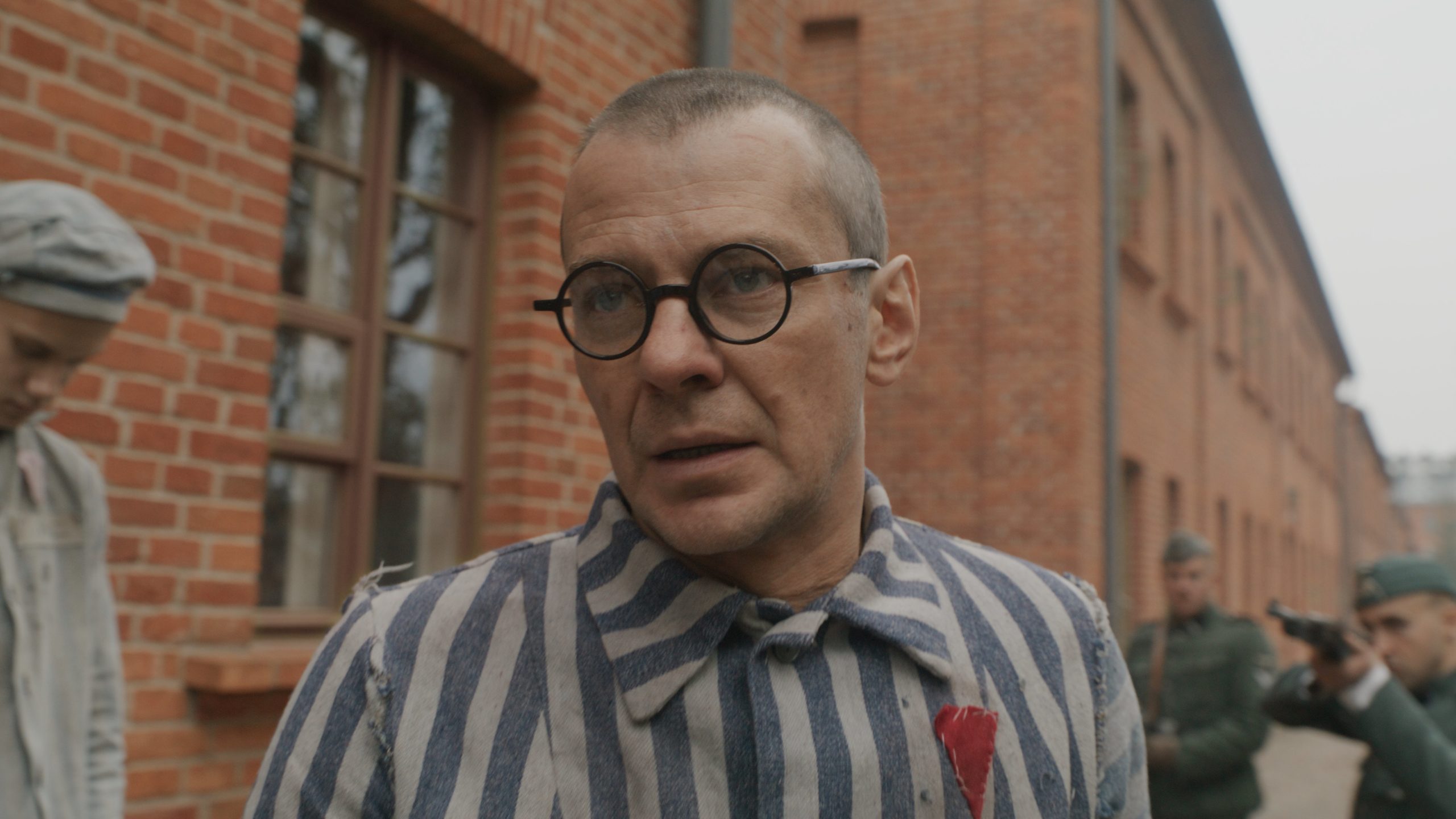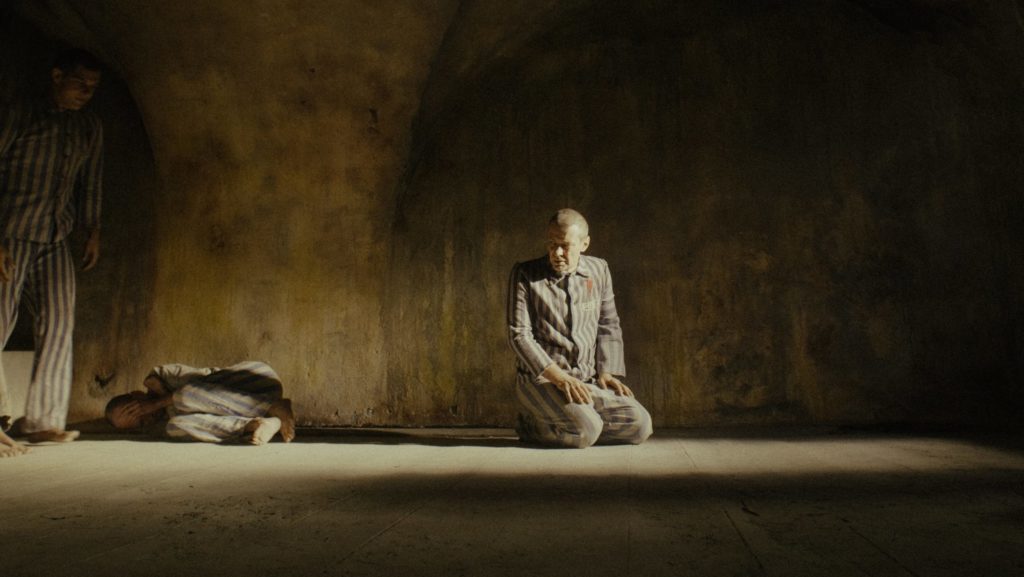Speaking to German youth in 2011, Pope Benedict XVI said, “Dare to be glowing saints, in whose eyes and hearts the love of Christ beams and who thus bring light to the world.”
Christians through history have looked to our saints for just that reason: through their lives, struggles, and joys, the Gospel shines, and not just as inspiration — but as an aspiration, with grace, attainable by anyone.
So we tell their stories. But because we are human, which means made in the image of a God who is Creator — we create.
The list of imaginative works rooted in saints’ lives is long and we probably all have our favorites (and not-favorites), from Mark Twain’s “Joan of Arc” to Taylor Caldwell’s Lucan epic “Dear and Glorious Physician” to Gertrude Le Fort’s “The Sword and the Scaffold” about the recently canonized Martyrs of Compiègne.
Filmed attempts at straight biographies include “The Song of Bernadette,” “Monsieur Vincent,” and the recent “Cabrini.” But to go beyond external events — foundings, conflicts, martyrdoms — and to attempt to portray profound spiritual experience on the screen? That is not easy, and indeed lends itself to more meditative works that reflect both the spiritual and creative concerns of the filmmaker.
In this category we’d find, for example, Poulenc’s opera about those Compiègne martyrs, “The Dialogue of the Carmelites.” In film, there’s the 1986 French (and somewhat controversial) “Thérèse,” Franco Zefferelli’s “Brother Sun, Sister Moon” about Francis and Clare — scorned by some, a guilty pleasure for others (not that I know anyone in that category, of course) — and recently, Terence Malick’s meditation on the life of Blessed Franz Jagestatter, “A Hidden Life.”
It’s into this category that I’d place Anthony D’Ambrosio’s new film about St. Maximilian Kolbe, “Triumph of the Heart.”
For “Triumph of the Heart” is far less a biography of the saint than an artful personal meditation on his holiness and witness, explored in stark, even painful detail through the lens of the Polish priest’s final two weeks of life in the starvation bunker at Auschwitz.
History hasn’t recorded much about what happened during those days. Eyewitnesses who survived the camp have given us a record of the Polish Franciscan’s insistent offer to replace Franciszek Gajowniczek, the husband and father selected for starvation in punishment for a runaway prisoner. They tell of hearing Kolbe’s group singing and praying. Most notably, Bruno Borgowiec, a prisoner who was used as an interpreter between Polish prisoners and the Germans, and who cleaned the starvation bunker each day left an account, before his death in 1945, of what he saw in the cell — including the moment of death for Kolbe and the other remaining prisoners at the end.
In terms of “facts,” that’s all we have. How can an almost-two hour film be constructed from these slim particulars? Well, writer and director D’Ambrosio takes what we do know about Kolbe’s months in Auschwitz — which is a surprising amount — as the raw material for an imaginative meditation on those final days.

Kolbe’s fellow prisoners report his strong, level, centered disposition, and his intense prayer life into which he invited others, both in word and song. He heard confessions, he taught and encouraged, and at every moment was ready to share the sacrificing love of Christ.
“Triumph of the Heart,” then, is an artful, creative digest of Kolbe’s life and impact in Auschwitz, dramatized through fictionalized characters, conversations, and actions. It’s beautifully shot and staged and powerfully acted, an encouraging sign of what creators can accomplish with a strong vision and limited resources, outside the established filmmaking ecosystem.
The great theological and spiritual struggle here is twofold: the fundamental question of theodicy, the goodness and even very existence of God, as well as the challenge of existence itself, particularly in a situation of great suffering.
As D’Ambrosio has said in interviews, these are quite personal, not abstract issues to him. During a time of questioning, deconstruction, suffering, and darkness, it was the witness of Kolbe that — to use Pope Benedict’s words — glowed through that darkness.
The existential questions that Kolbe and his fellow prisoners faced are also for us, on both a personal and social level. In a world of cruelty and dehumanization, in a world that scoffs at the good and even seeks to eradicate it, in a world in which the value of life is decided by the powerful, the witness of Kolbe reminds us of our privilege and our duty, explained to a priest-fellow prisoner, but for our ears as well, “We must do great work for God here.”
As an imaginative reconstruction and mediation, “Triumph of the Heart” is an affecting way to engage with the memory of Kolbe, even if theologians and historians might take issue with certain elements. For example, the last scene — which I won’t spoil — a coda of sorts, struck this reviewer as well-meaning, but a near-trivialization of the suffering and shape of hope that has preceded it.
But as a whole, “Triumph of the Heart” offers viewers, whether they be new to Kolbe’s story or old friends of the saint, a moving reminder of the power of God’s love in the midst of any circumstance, an effective dramatization of words the saint wrote to his mother from Auschwitz: … because the good God is in every place and with great love He thinks about everyone and everything.

